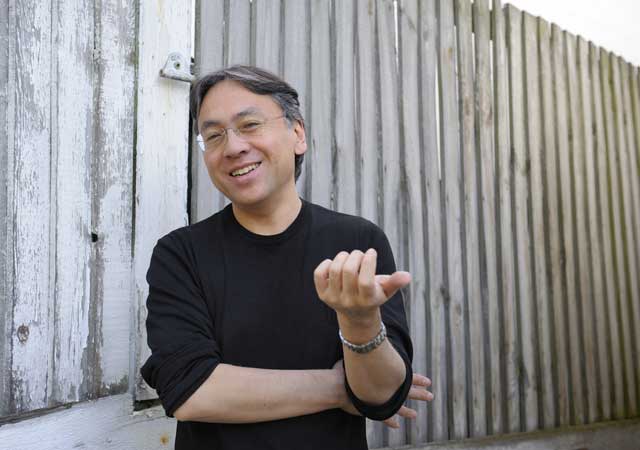Boyd Tonkin: The longest, and last, all-star fiction show
The Week In Books

Looking back on the 1930s, when even a pack of poets might shine in the firmament of literature, one of their enemies minted a collective name for the most fashionable young bards of the age. "McSpaunday" fused Louis MacNeice, Stephen Spender, WH Auden and C Day Lewis into a hybrid beast that, to outsiders such as Roy Campbell (who coined the tag), had hogged far too much attention and esteem.
As with all imaginary literary cliques, "McSpaunday" never for a minute thought and wrote as one. But the urge to corral a generation's leading authors into a semblance of unity persists. It happened again in the 1980s, after the fiction writers loosely linked by Granta magazine's first "best of young British" list had genuinely done so much, and so quickly, to shake the national novel out of its state of torpor.
This time, the chimerical creature that emerged did not just roar around the cultural landscape for a few years and then slink away. It stayed put, the enduring model for a literary life that blended talent, celebrity – and the odd dollop of headline-grabbing controversy. I tend to think of this ageless monster as a theatrical Scotsman who goes by the name of Amish McRushbar.
As writers, Martin Amis, Kazuo Ishiguro, Ian McEwan, Salman Rushdie and Julian Barnes had and have about as little in common as that spectral "Auden gang". Yet a unique confluence of forces – from the boom in humanities graduates to smarter book retailers, cannier agents and marketeers, and a fresh media hunger for upscale stardom – meant that these names became the above-the-title cast of an endless BritLit soap opera. Born shortly before EastEnders, they are now going stronger than the folk in Albert Square.
This week has ratified Amis's ability to secure acres of newsprint and air-time with off-the-cuff remarks; meanwhile, the BBC has its adaptation of his novel Money in the can. McEwan's new work (Solar) arrives in a matter of weeks, while Barnes's Arthur & George will land on stage, and Ishiguro's Never Let Me Go on the cinema screen. As with the immortal rock giants of an earlier vintage (Led Zep, Pink Floyd, the Stones), baby-boomer executives who first acclaimed their arrival have grown up with these idols, and still occupy the taste-making roles that allow them to polish up the glory of this group for younger readers. Yes, their gifts more than deserve this longevity – but they had strokes of historical luck.
Most likely, they will not be replaced. An equal and opposite "perfect storm" now threatens to ensure that no new generation of novelists (let alone poets) can win such reach and such renown.
Whatever its pace and route, the drift towards electronic reading (probably accelerated this week by Apple's iPad) will exert severe downward pressure on the incomes of serious authors. Generous advances nurtured the talents of 1980s rising stars. Newly predatory agents, and combative global publishers, competed to sign and sell them. For almost all non-genre novelists, that world has vanished. Most e-book revenues will hardly earn a decent wage.
Kazuo Ishiguro, the least overtly topical of this band but maybe the one who dips most subtly into the spirit of his age, actually turned the onerous quest to make a living from a skill into an abiding theme of his recent stories of musicians, Nocturnes. So smart, as always. As for intelligent newspapers, websites and broadcasters to discuss non-trivial books - they will hang on, but in a cramped corner of our cultural space. And online entertainment will continue to shrink the ranks of readers.
Whatever its drawbacks, the brand of literary celebrity that can promote an Amis jest about "euthanasia booths" into full-page news has also helped to shift millions of first-rate novels. That market will soon contract. So enjoy the Amish McRushbar show while you can. To enlist a phrase that would make this most cliché-averse generation gag, we will not see their like again.
P.S.In a week when – with Apple's iPad launch – corporate gadgetry seemed likely to set the cultural agenda, we had a blessed reminder that the ancient software of creation can still find a voice. Christopher Reid's unforgettable elegiac poems, A Scattering, took the Costa Book of the Year award: a victory too for the small-scale Gutenberg technology of its publisher, Arete. Meanwhile, tomorrow at Central Hall Westminster, at 2.30pm, 20 leading poets will appear in flesh-and-blood to read in aid of the people of Haiti. Organised by Poet Laureate Carol Ann Duffy and Poetry Live, the line-up of low-tech carbon forms also includes Andrew Motion, Roger McGough, Dannie Abse, Brian Patten, Elaine Feinstein (left), Grace Nichols and Daljit Nagra. For tickets (£10), call 01497 822629 or see www.poetryliveforhaiti.org. All proceeds to the DEC Haiti appeal.
Subscribe to Independent Premium to bookmark this article
Want to bookmark your favourite articles and stories to read or reference later? Start your Independent Premium subscription today.

Join our commenting forum
Join thought-provoking conversations, follow other Independent readers and see their replies